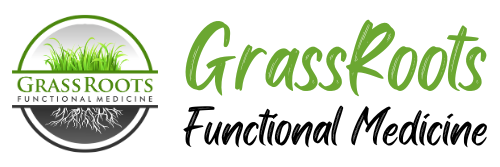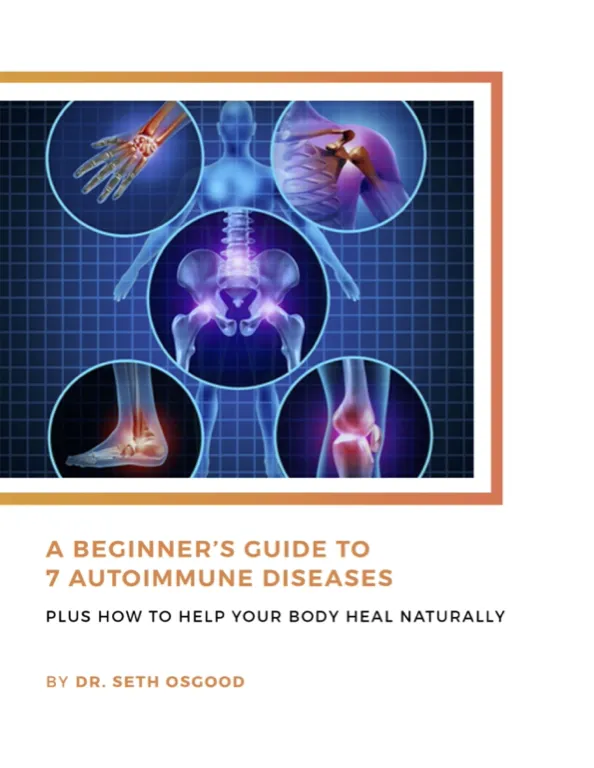When we hear about cholesterol, it’s usually about high cholesterol.
We are overwhelmed by messages from heart associations, pharmaceutical companies, and our doctors trumpeting the risks of high cholesterol and touting the benefits of cholesterol-lowering drugs. (If you’ve followed me for a while then you know why I think this is too narrowly focused and putting many patients at unnecessary risk).
But what about cholesterol that is too low?
We don’t hear nearly as much about suboptimal cholesterol. This is partly because the medical community is still researching the condition to better understand it.
As new research findings continue to emerge, we are beginning to understand what suboptimal cholesterol does to our bodies. In fact, suboptimal cholesterol has already been linked to anxiety, cancer, depression, and several other conditions.
So let’s explore what is known about suboptimal cholesterol, how the condition can affect you, and what you can do to address it.
What Role Does Cholesterol Play in the Body?
While excess levels of certain types of cholesterol can increase your risk for heart disease and stroke, it has many important roles to play in the body. Here’s a quick look at how it impacts digestion, hormone balance, cognition, and mood.
Digestion
Cholesterol is needed to create stomach bile, which allows our bodies to absorb nutrients from the foods we eat.
Hormone production
In order to produce healthy amounts of stress hormones and sex hormones—like progesterone, testosterone, estrogen, and vitamin D—our bodies need adequate cholesterol.
Brain function and mood
25% of the body’s cholesterol is found in the brain and it is critical to healthy brain function. Cholesterol is required for brain synapses to form properly which allows us to learn and memorize information. Additionally, cholesterol is needed to create the serotonin receptors in our brains that stabilize moods, generate feelings of happiness and arousal, and help us digest, sleep, and eat.
Causes of Low Cholesterol
Now that we understand why cholesterol is so important, we can explore what can cause it to drop to suboptimal levels. Some things that can impact your cholesterol levels include:
- Thyroid dysfunction
- A poor or overly restrictive diet
- Statin medications
- Infections like Hepatitis C
- Anemia
- Liver disease
- A pattern of low cholesterol that runs in your family
One cause I want to highlight in particular is a type of drug called statins. This medication is prescribed to people to help lower their cholesterol if blood tests indicate their levels are too high. However, these medications are often overprescribed, do little to actually decrease your risk of adverse cardiac events, and can bring cholesterol levels down too low and create a whole host of new health issues for you to deal with.
Using statin medications can cause memory loss, muscle damage, increased blood sugar levels, and hemorrhagic strokes. Yet, despite the severe health risks associated with statins, 25% of the US population over the age of 40 are taking these medications. This percentage is so high because many conventional doctors find it easier to put their patients on statins than to work with them to make healthy and long-lasting lifestyle changes.
Statins shouldn’t be used as a casual bandaid for high cholesterol. Make sure to speak with your health care provider if you’re taking statins to see if lifestyle modifications can be made to gradually replace the use of this medication.
Also keep in mind that there are no physical symptoms of low cholesterol and the only way to identify this condition is through blood tests. For this reason, it is important to regularly get blood tests to check your cholesterol levels.
What Happens When Cholesterol is Too Low?
In general, having low cholesterol is considered healthy but when it is too low it can cause health issues. That said, identifying suboptimal cholesterol will vary from person to person. Usually, if someone’s LDL cholesterol is less than 50 milligrams per deciliter of blood, it is considered suboptimal. People with suboptimal cholesterol levels are at an increased risk of the following symptoms and conditions.
Digestive issues
Cholesterol is critical to the production of stomach bile which breaks down our food and absorbs its nutrients. Some people with suboptimal cholesterol may not produce enough bile and have problems breaking down food, which can contribute to SIBO, Candida, and other forms of dysbiosis. They may also develop nutrient deficiencies that can impact immune function, autoimmunity, thyroid function, energy levels, and more.
Left untreated, the inability to absorb food properly can cause bloating, diarrhea, lowered immune system function, and bone density issues.
Sexual disfunction and hormone imbalance
Recall that a lack of cholesterol impacts the production of sex hormones. When this happens it can cause low libido, erectile dysfunction, and fatigue. In my clinic, I see a lot of patients come in on statins who are suffering from these issues because their medications are depleting their cholesterol.
Anxiety, depression, and other mood disturbances
Some research has found that patients who experience severe depression or aggression also have consistently low cholesterol levels. In fact, when people with high cholesterol levels were given statin medication, these studies found that people’s risk for suicide and violence-related deaths increased. This makes sense when you consider that cholesterol plays a critical role in the production of hormones which, in turn, are critical for healthy brain function. A cholesterol deficiency can negatively impact brain function and ultimately cause mood disturbances.
Finding the Right Treatment for Suboptimal Cholesterol
If a blood test shows suboptimal cholesterol levels, it is most likely being caused by either your diet, an imbalance in your body, or your medication.
Once you’ve done a blood test and low cholesterol has officially been identified, you should discuss treatment options with your healthcare provider. This may include adjusting your diet, taking vitamins A, D, E, and K, or gradually coming off your statin medication if you are taking them.
If you’re looking to optimize your state of wellness rather than treating one-off symptoms like a game of whack-a-mole or relying on prescription drugs, we’d love to partner with you in our Adaptation Programs. Our clinic takes a comprehensive approach to address your health issues, including suboptimal cholesterol levels. This means we work in-depth with you to understand what is negatively impacting your health and then we provide a personalized protocol with support every step of the way to help you feel your best for years to come. Just book a free discovery call with me to get started.
About the Author: Dr. Seth Osgood is a Doctor of Nursing Practice, Board Certified Family Nurse Practitioner and Institute of Functional Medicine (IFM) Certified Practitioner. Dr. Osgood received his post-graduate training in Functional Medicine through the IFM and from working with Dr. Amy Myers. He has helped people from around the world improve their health utilizing a Functional Medicine approach.





